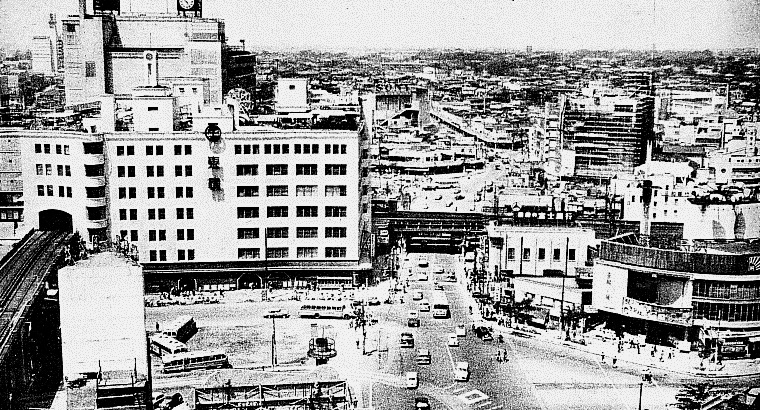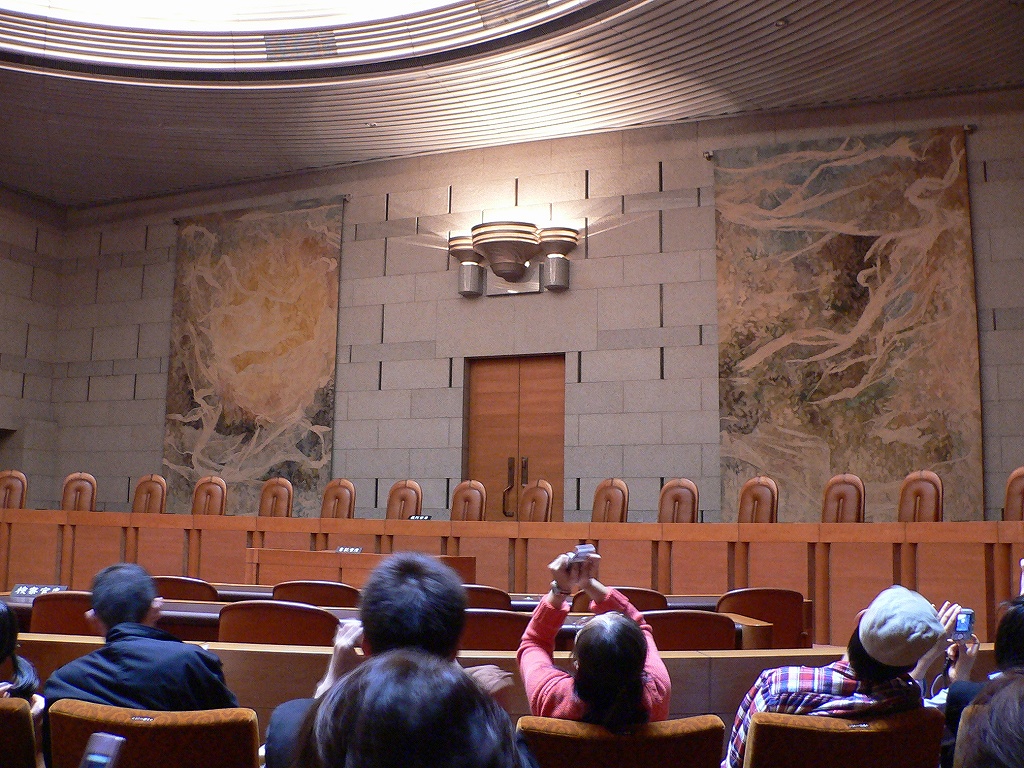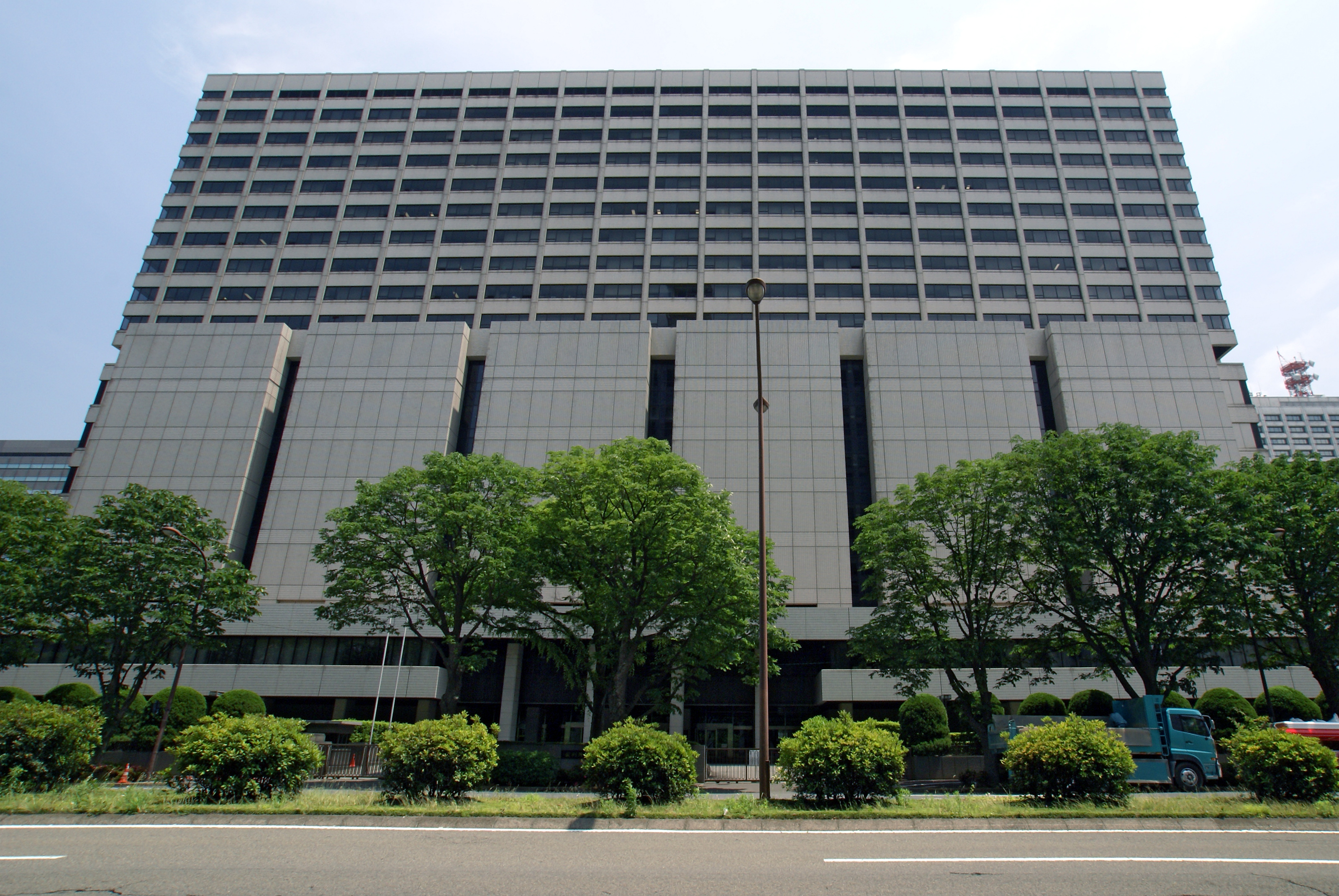|
Norio Nagayama
was a Japanese spree killer and novelist. Biography Nagayama was born in Abashiri, Hokkaido and grew up with divorced parents. He moved to Tokyo in 1965 and, while working in Tokyo's Shibuya district, witnessed the Zama and Shibuya shootings. Nagayama killed four people with a handgun between October11 and November5, 1968. He robbed the last two victims of 16,420yen. He was arrested on April7, 1969. When he was arrested, he was 19years old and was regarded as a minor under Japanese law at the time. The Tokyo District Court sentenced him to death in 1979, though this was overturned by the Tokyo High Court, which imposed a sentence of life imprisonment in 1981. The Supreme Court of Japan reversed the high court's decision in 1983. This ruling is today considered the landmark decision for the application of the death penalty in Japan. The high court on remand subsequently sentenced him to death in 1987, a decision which the Supreme Court upheld in 1990. In prison, Nagayama wrote ... [...More Info...] [...Related Items...] OR: [Wikipedia] [Google] [Baidu] |
Abashiri, Hokkaido
is a city located in Okhotsk Subprefecture, Hokkaido, Japan. Abashiri is known as the site of the Abashiri Prison, a Meiji-era facility used for the incarceration of political prisoners. The old prison has been turned into a museum, but the city's new maximum-security prison is still in use. As of 2008, the city has an estimated population of 40,333 and a density of 85.6 persons per km2 (222 persons per sq. mi.). The total area is . Etymology There are various theories about the origin of the name 'Abashiri' and, because of that, the origin is unknown. All of those theories are based on the Kanji interpretation of the Ainu language. These are the following theories. * ''Apasiri'' (アパシリ) which is translated as "''leaking ground''". The reason behind this is that there was a cave, and water drops were falling inside like raindrops. * ''Cipasiri'' (チパシリ). The name is based on an Ainu legend of a bird. * ''Chipasiri'' (チパシリ). There used to be a white roc ... [...More Info...] [...Related Items...] OR: [Wikipedia] [Google] [Baidu] |
Shibuya, Tokyo
Shibuya (渋谷 区 ''Shibuya-ku'') is a special ward in Tokyo, Japan. As a major commercial and finance center, it houses two of the busiest railway stations in the world, Shinjuku Station (southern half) and Shibuya Station. As of April 1, 2022, it has an estimated population of 228,906 and a population density of 15,149.30 people per km2 (39,263.4/sq mi). The total area is 15.11 km2 (5.83 sq mi). The name "Shibuya" is also used to refer to the shopping district which surrounds Shibuya Station. This area is known as one of the fashion centers of Japan, particularly for young people, and as a major nightlife area. History Heian to Edo period Shibuya was historically the site of a castle in which the Shibuya family resided from the 11th century through the Edo period. Following the opening of the Yamanote Line in 1885, Shibuya began to emerge as a railway terminal for southwestern Tokyo and eventually as a major commercial and entertainment center. Meiji to Showa period ... [...More Info...] [...Related Items...] OR: [Wikipedia] [Google] [Baidu] |
Live Today, Die Tomorrow!
is a 1970 Japanese drama film written and directed by Kaneto Shindō. It is based on the true story of spree killer Norio Nagayama. Plot Michio Yamada, a recent school graduate from Hokkaido, is sent to Tokyo to work as a fruit packer in a department store as part of a government programme. One participant after another quits, and so does Yamada. He drops out of various jobs, is caught while secretly trying to board a ship to the U.S., and is rejected when he volunteers for military service. Later, he kills two guardsmen with a gun which he stole from a house on an American base. Halfway into the film, a Flashback (narrative), flashback sequence tells of Yamada's poor upbringing as the seventh child of eight of a submissive woman and her irresponsible husband. As a young boy, he is forced to witness the rape of his older sister, who suffers a trauma and is sent to a mental institution, and the starving of two other sisters in their attempt to feed the youngest siblings. Back in ... [...More Info...] [...Related Items...] OR: [Wikipedia] [Google] [Baidu] |
Kobe Child Murders
The occurred in Suma, Kobe, Japan, on March 16 and May 27, 1997. Two victims, , aged 10, and , aged 11, were murdered by a 14-year-old boy reportedly named , under the alias . The perpetrator was arrested on June28, 1997 in connection with the Hase murder, and later confessed to both murders. As a juvenile offender, he was prosecuted and convicted as "BoyA". His real name has not been officially released to the press because Japanese law prohibits publishing the identification, but in some weekly magazines his real name has been reported as Shinichiro Azuma. Beginning in 2004, Azuma was released on provisional basis, with full release announced to follow on January1, 2005. The murders and subsequent release of the perpetrator gained widespread attention from Japanese media and politicians. Murders On May27, 1997, the head of , a special education pupil at Tainohata Elementary School, was found in front of the school gate hours before pupils arrived for classes. Hase had been b ... [...More Info...] [...Related Items...] OR: [Wikipedia] [Google] [Baidu] |
Tokyo Detention Center
Tokyo (; ja, 東京, , ), officially the Tokyo Metropolis ( ja, 東京都, label=none, ), is the capital and largest city of Japan. Formerly known as Edo, its metropolitan area () is the most populous in the world, with an estimated 37.468 million residents ; the city proper has a population of 13.99 million people. Located at the head of Tokyo Bay, the prefecture forms part of the Kantō region on the central coast of Honshu, Japan's largest island. Tokyo serves as Japan's economic center and is the seat of both the Japanese government and the Emperor of Japan. Originally a fishing village named Edo, the city became politically prominent in 1603, when it became the seat of the Tokugawa shogunate. By the mid-18th century, Edo was one of the most populous cities in the world with a population of over one million people. Following the Meiji Restoration of 1868, the imperial capital in Kyoto was moved to Edo, which was renamed "Tokyo" (). Tokyo was devastated ... [...More Info...] [...Related Items...] OR: [Wikipedia] [Google] [Baidu] |
Saarland
The Saarland (, ; french: Sarre ) is a state of Germany in the south west of the country. With an area of and population of 990,509 in 2018, it is the smallest German state in area apart from the city-states of Berlin, Bremen, and Hamburg, and the smallest in population apart from Bremen. Saarbrücken is the state capital and largest city; other cities include Neunkirchen and Saarlouis. Saarland is mainly surrounded by the department of Moselle ( Grand Est) in France to the west and south and the neighboring state of Rhineland-Palatinate in Germany to the north and east; it also shares a small border about long with the canton of Remich in Luxembourg to the northwest. Saarland was established in 1920 after World War I as the Territory of the Saar Basin, occupied and governed by France under a League of Nations mandate. The heavily industrialized region was economically valuable, due to the wealth of its coal deposits and location on the border between France and German ... [...More Info...] [...Related Items...] OR: [Wikipedia] [Google] [Baidu] |
Prison
A prison, also known as a jail, gaol (dated, standard English, Australian, and historically in Canada), penitentiary (American English and Canadian English), detention center (or detention centre outside the US), correction center, correctional facility, lock-up, hoosegow or remand center, is a facility in which inmates (or prisoners) are confined against their will and usually denied a variety of freedoms under the authority of the state as punishment for various crimes. Prisons are most commonly used within a criminal justice system: people charged with crimes may be imprisoned until their trial; those pleading or being found guilty of crimes at trial may be sentenced to a specified period of imprisonment. In simplest terms, a prison can also be described as a building in which people are legally held as a punishment for a crime they have committed. Prisons can also be used as a tool of political repression by authoritarian regimes. Their perceived opponents may be ... [...More Info...] [...Related Items...] OR: [Wikipedia] [Google] [Baidu] |
Death Penalty In Japan
Capital punishment is a legal penalty in Japan. It is applied in practice only for aggravated murder, although it is also a legal penalty for certain crimes against the state, such as treason and military insubordination, as well as kidnapping resulting in death. Executions are carried out by long drop hanging, and take place at one of the seven execution chambers located in major cities across the country. Death sentences are usually passed in cases of multiple murders, although there have been some cases where individuals who committed a single murder have been sentenced to death and executed, such as those involving torture, or kidnapping with a demand for ransom. Since 2000, 118 inmates have been executed in Japan, with the most recent being the execution of Tomohiro Katō, the perpetrator of the Akihabara massacre in 2008, who was executed on 26 July 2022. There are currently 106 death row inmates awaiting execution. Support for capital punishment has consistently been high ... [...More Info...] [...Related Items...] OR: [Wikipedia] [Google] [Baidu] |
Supreme Court Of Japan
The , located in Hayabusachō, Chiyoda, Tokyo, Chiyoda, Tokyo, is the Supreme court, highest court in Japan. It has ultimate judicial authority to interpret the Constitution of Japan, Japanese constitution and decide questions of national law. It has the power of judicial review, which allows it to determine the constitutionality of any law or official act. History The modern Supreme Court was established in Article 81 of the Constitution of Japan in 1947. There was some debate among the members of the Supreme Commander for the Allied Powers, SCAP legal officers who drafted the constitution and in the National Diet, Imperial Diet meeting of 1946 over the extent of the power of the judiciary, but it was overshadowed by other major questions about popular sovereignty, the role of the emperor, and the renunciation of war. Although the ratified wording in Article 81 states that court possesses the power of judicial review, a part of the court's early history involved clarifying the ... [...More Info...] [...Related Items...] OR: [Wikipedia] [Google] [Baidu] |
Life Imprisonment
Life imprisonment is any sentence of imprisonment for a crime under which convicted people are to remain in prison for the rest of their natural lives or indefinitely until pardoned, paroled, or otherwise commuted to a fixed term. Crimes for which, in some countries, a person could receive this sentence include murder, torture, terrorism, child abuse resulting in death, rape, espionage, treason, drug trafficking, drug possession, human trafficking, severe fraud and financial crimes, aggravated criminal damage, arson, kidnapping, burglary, and robbery, piracy, aircraft hijacking, and genocide, crimes against humanity, war crimes or any three felonies in case of three-strikes law. Life imprisonment (as a maximum term) can also be imposed, in certain countries, for traffic offences causing death. Life imprisonment is not used in all countries; Portugal was the first country to abolish life imprisonment, in 1884. Where life imprisonment is a possible sentence, there may als ... [...More Info...] [...Related Items...] OR: [Wikipedia] [Google] [Baidu] |
Tokyo High Court
is a high court in Kasumigaseki, Chiyoda, Tokyo, Japan. The is a special branch of Tokyo High Court. Japan has eight high courts: Tokyo, Osaka, Nagoya, Hiroshima, Fukuoka, Sendai, Sapporo, and Takamatsu. Each court has jurisdiction over one of eight territories in the country. Each has a president and several high court judges. Typically three judges will sit to hear a case, though in some cases - such as ones related to insurrection - five judges will sit. Jurisdiction The High Court has the jurisdiction to hear appeals to judgments rendered by district courts in the first instance and family courts. This excludes cases under the jurisdiction of the Supreme Court. Appeals to criminal cases go directly to high courts, but civil case appeals are first handled by district courts. The Tokyo High Court has exclusive original jurisdiction over cases that involve quasi-judicial agencies, including the ability to rescind decisions in cases made by such agencies. Intellectual Property ... [...More Info...] [...Related Items...] OR: [Wikipedia] [Google] [Baidu] |
Capital Punishment
Capital punishment, also known as the death penalty, is the state-sanctioned practice of deliberately killing a person as a punishment for an actual or supposed crime, usually following an authorized, rule-governed process to conclude that the person is responsible for violating norms that warrant said punishment. The sentence ordering that an offender is to be punished in such a manner is known as a death sentence, and the act of carrying out the sentence is known as an execution. A prisoner who has been sentenced to death and awaits execution is ''condemned'' and is commonly referred to as being "on death row". Crimes that are punishable by death are known as ''capital crimes'', ''capital offences'', or ''capital felonies'', and vary depending on the jurisdiction, but commonly include serious crimes against the person, such as murder, mass murder, aggravated cases of rape (often including child sexual abuse), terrorism, aircraft hijacking, war crimes, crimes against h ... [...More Info...] [...Related Items...] OR: [Wikipedia] [Google] [Baidu] |







